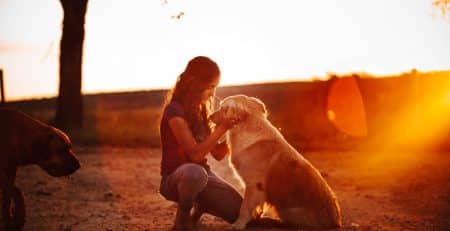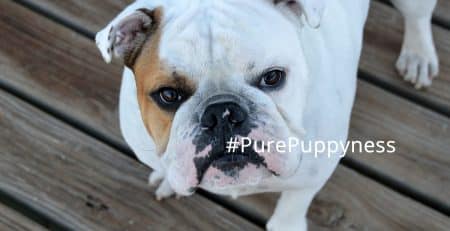The Pros of Socialisation
What is socialisation?
Socialisation is a process where puppies learn about the world around them, and how to live in it. In their first few months of life, puppies will learn to cope with all sorts of new situations: everything from meeting new people and dogs, to the hustle and bustle of city life.
What’s so important about socialisation?
Puppies are a wonderful mixture of energy, curiosity, and inexperience. They know very little about the world around them, and can inadvertently annoy you as a result. A puppy will have no idea when or where they can go to the bathroom, what time they get their dinner, or what objects they are allowed to play with or chew.
And there are more serious consequences than chewed shoes or pee on the carpet. An unsocialised puppy will lack the confidence that a socialised puppy has gained in early life. This often makes such a dog anxious and unconfident, which can lead to fear and aggression later in life.
If you choose to commit yourself to the responsibility of owning a dog, you owe it to your puppy to give them the best start possible. You’ll also reap the benefits of this early work, as properly socialised dogs are typically self-assured and calmer than their unsocialised counterparts. They are a lot easier to handle, which is useful for everything from taking your dog on a walk to visiting the vet.
You’ll find that your dog can cope better with stressful situations, such as going for vaccinations or being left alone (a properly socialised dog might not even mind being left home alone for a little while). A properly socialised dog is also less likely to be aggressive or timid.
What does socialising a dog involve?
Socialisation should start when a puppy is two to three months old. Your puppy does the most learning between the ages of three and 20 weeks. In this time, the more new experiences they are exposed to, the more they will learn to cope with.
It’s good for puppies to learn some basic lessons and to establish a routine. Puppies find routines and consistency comforting, as they will know what to expect. Uncertainty can be very upsetting for a dog.
Some useful things for your puppy to learn include learning their routine. This includes learning when meal times are, when and where bedtime is, when to wake up, when and where to go to the bathroom, and where to find his/her toys. You can also get your puppy used to being handled, and getting them used to different noises (phones, alarm clocks, kitchen equipment etc.). As you and your puppy get to know each other, you can also teach them how to play appropriately (and to avoid nipping), and how to be alone.
Outside of the home, you’ll be getting your puppy used to going for walks. This is a great opportunity for your puppy to learn about the wider world. There are all sorts of potentially scary sights and sounds outside, but with gradual exposure at a young age, your dog will soon learn that there’s nothing to fear. Your puppy can also get used to meeting new people and dogs, and learning how to behave politely with them.
Your puppy can also start to learn commands and the meaning of words. It’s handy for your puppy to learn “good dog!”; after all, what dog doesn’t like to be praised (when they’ve earned it!)? A command such as “No” or “Leave it” is also useful: especially if your puppy has just dug his/her teeth into some expensive new shoes!
You’ll need to practise using the proper tone of voice and body language, which will help the puppy to understand your meaning. “Good” and “No” are the groundwork for all other commands, and will help your puppy to learn what is expected from him/her.
Before you commit to getting your new puppy, think about what specific things your dog should be trained to do or not do; for example, do you want to allow your dog on the sofa? If not, it’s best to teach them this from the beginning: again, consistency is key!
How do I get started?
If you choose to get a puppy through New Doggy, one of our dog trainers can start your pup off on the right foot by providing basic socialisation and training. Our dog trainers will socialise your new dog, teaching them the following:
- Toilet training
- Leash training
- Getting used to his/her new name (as chosen by you)
- Basic commands
- Other special requests from the new owner. These could include learning about restricted areas in the house/apartment, traveling in car, and climbing stairs.
You will need to continue socialisation and training when you bring your puppy home, but our trainers will provide guidance. This will include a “Summary of Socialisation Training”: a document containing a summary of the dog’s training so far, with tips and suggestions for the future. This will help you to continue with socialising and training your puppy.
The summary will also tell you about your puppy’s character and quirks or habits, and what routine he/she is used to (you can gradually change the routine if need be).
Puppy classes
It can be great to join a puppy class, as these are a great opportunities for puppies to practise their training, and to socialise with other dogs.
Classes aimed at puppies under 16 weeks old consist of shorter sessions to match the puppies’ short attention spans. These particular classes focus on socialisation, so that the puppies can learn what to expect from the world around them, and how to behave with other dogs and humans. A typical puppy class for older pups and dogs will be focused on teaching your dog basic manners and commands, such as not jumping up on people, or coming when called.






















